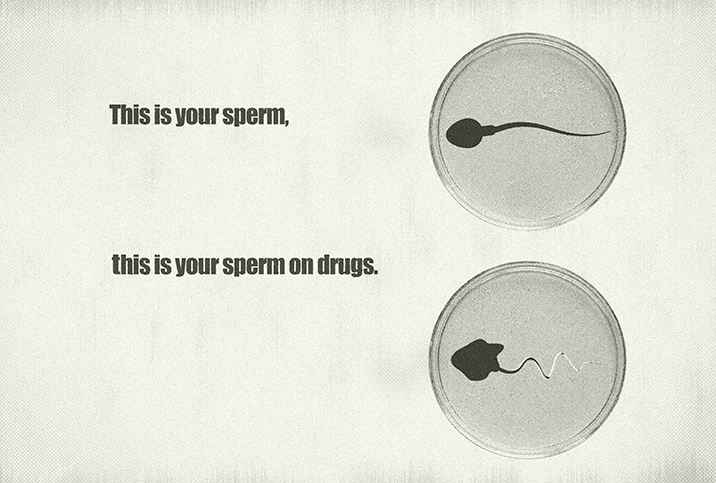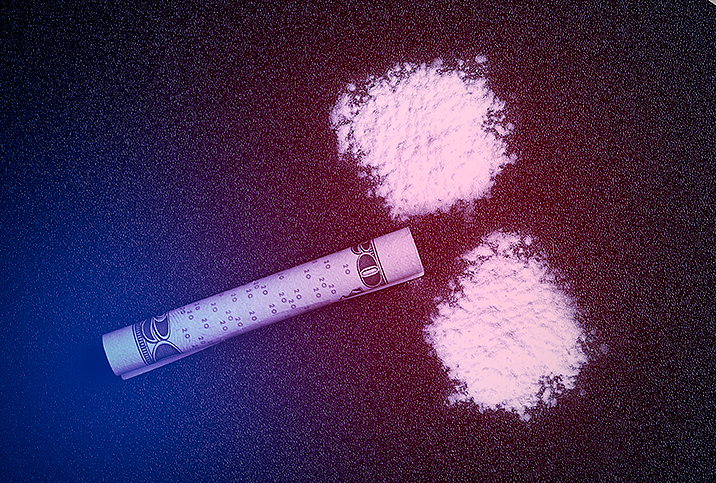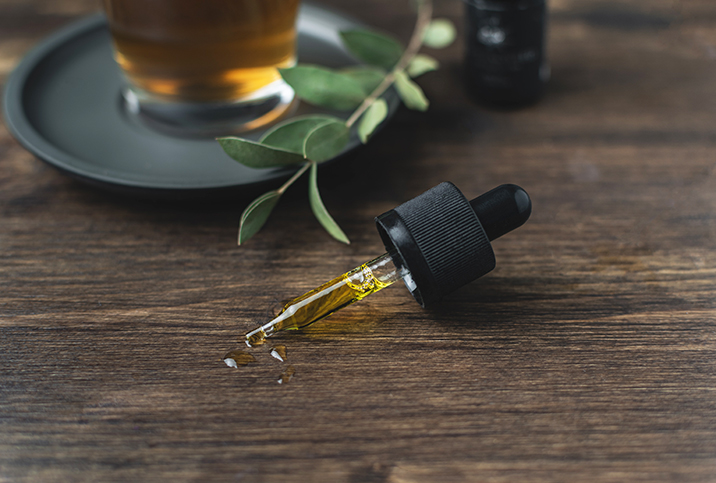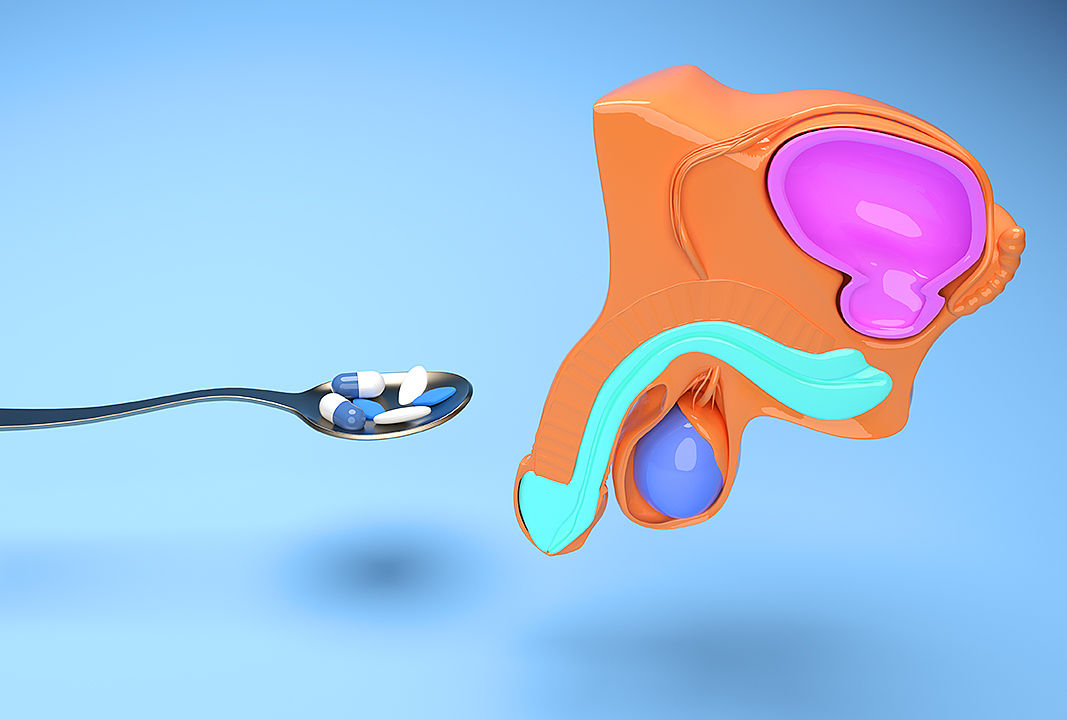The Damage Drugs Can Do to Your Sperm

Drugs do some miraculous things, everything from growing hair to saving lives. Some drugs, of course, cause serious quality-of-life problems and even end lives when abused. A perhaps unexpected side effect of certain drugs? Men who want to become dads sometimes find that a substance they've taken for years, legally or illegally, has made it impossible to impregnate a partner. There is an alarmingly long list of drugs that damage sperm and impair male fertility.
Medicinal drugs
Many drugs taken for medicinal reasons can have an insidiously negative effect on reproductive health. For example, men have used anabolic steroids for decades to increase muscle growth and strength, though they can also lead to a host of health problems from heart failure to liver cancer. However, many have found that testosterone, the key ingredient, blocks sperm production. Reversing this effect can take up to a year, so be open with your physician if there is a chemical component to your workout routine.
Addiction isn't the only downside of taking opioids for pain control as these drugs can also adversely affect sperm quality and quantity. The opioid epidemic in the United States has convinced a growing number of healthcare providers to stop prescribing the drug, though studies have shown that short-term use does not necessarily damage sperm. If you're on a prescriptive regimen for chronic pain, it's important to let your doctor know you're trying to have a child before they write another prescription.
Male fertility can also be impacted by drugs prescribed to treat emotional and psychological conditions. Selective serotonin reuptake inhibitors (SSRIs) are often used to treat depression and anxiety; however, they can inhibit or delay ejaculation and, in some cases, reduce sexual desire. Marijuana, which has been legalized in 36 states and the District of Columbia for medicinal purposes, has been found to negatively impact sperm health and function.
Antibiotics have been part of the healthcare mainstream for decades, yet commonly prescribed antibiotics such as erythromycin and tetracycline have been shown to impair sperm motility in vitro, as part of a study by medical experts that pulled data from 2000-2012. The same study indicated that male fertility can be damaged by spironolactone, a widely prescribed drug that controls high blood pressure, and drugs used in chemotherapy and to prevent cardiovascular problems can also cause reproductive issues. Ketoconazole, which is taken in pill form or as a topical antifungal treatment, is damaging to testosterone and sperm production.
Recreational drugs
Unsurprisingly, drugs capable of causing addiction and threatening your life can also destroy a man's ability to father children. Cocaine, ecstasy, heroin and other "hard" drugs reduce testosterone levels and damage sperm quality.
Marijuana may be legal in many places, but its effect on sperm is anything but beneficial. A Duke Health study found that cannabis alters the genetic profile of sperm, which is bad news for guys who use marijuana regularly. Regular users also have lower levels of seminal fluid and sperm concentrations than men who do not use weed. Sexual dysfunction, including premature ejaculation and impotence, may also result. The story's pretty much the same for tobacco smokers. A 2007 study shows that men who use tobacco heavily have a 19 percent lower sperm concentration than nonsmokers.
The mathematics of fertility
Conceiving a baby can be difficult and take a great deal of time. Out of the millions of sperm your body produces, only a tiny fraction make it to the fallopian tubes to fertilize a female's egg. Even healthy couples may try for years to become pregnant.
Serial drug use makes it significantly more difficult because drugs not only reduce sperm levels, they can also affect the shape, size, motility and overall viability of your sperm.
The fundamentals of a healthy lifestyle—a nutritious diet, exercise, eight hours of sleep a night and, above all, cessation of drug use—really do give you the best chance at conception.


















